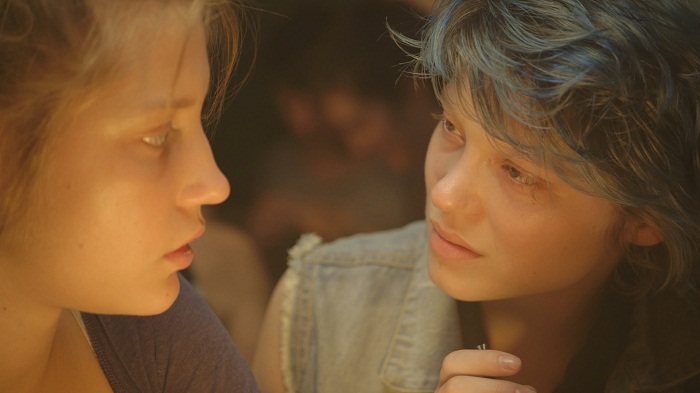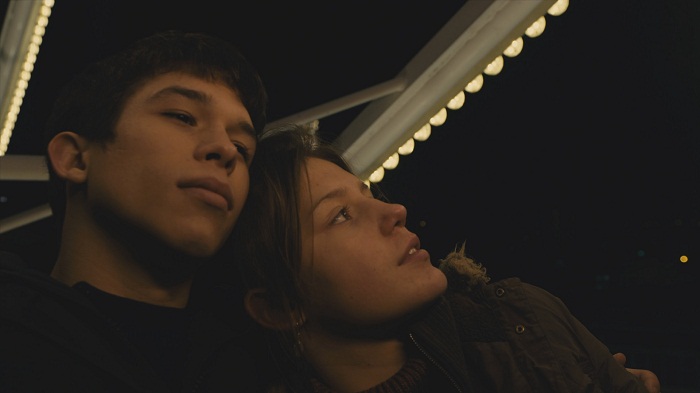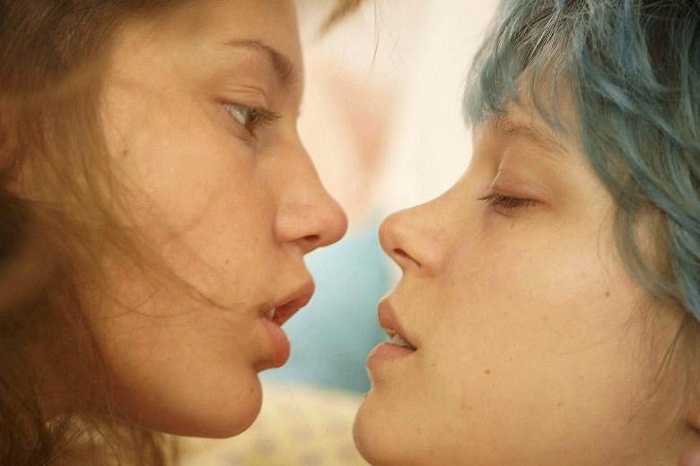Blue is the Warmest Colour, directed by Abdellatif Kechiche, is without a doubt the most divisive film shown at BFI London Film Festival 2013, with the controversy continuing after the final cut.
The 3-hour coming of age film sees 17-year-old Adèle (Adèle Exarchopoulos) navigate her way through high school in Lille and strike up a short-lived romance with the class ‘cool guy’ Thomas (Jérémie Laheurte), but the connection just isn’t there for her.

She spots the blue-haired Fine Art student Emma (Léa Seydoux) on the street and is instantly transfixed. Later, during a night out with her gay best friend Valentin (Sandor Funtek), Adèle breaks off from the group to sneak into a nearby lesbian bar, where she inevitably encounters Emma, who commands the bar and her own sexuality with ease.
Adèle’s naivety and inexperience are palpable, however Emma takes her under her wing. While being at different stages of their lives, there is a clear bond and unspoken attraction between them.
Although Emma is in a relationship and Adèle is still at school, the pair begin a close friendship, to the taunts of her bitchier school friends. Soon, things start to get serious and Adèle’s true sexual awakening begins with frequent, voracious sex with Emma, mostly after her conventional family’s evening dinners.
They then embark on a close relationship, however Emma’s creative aspirations become at odds with Adèle’s steady and safe life plan, as well as her hesitation over introducing Emma to her family and friends as her girlfriend (she masquerades as her Philosophy tutor).

While the plot is simple and linear, I found the film a beautifully-shot, engaging and tender account of an ordinary girl’s journey into adulthood. The first sex scene is intense and uncompromising, with gratuitous slurping noises, ass slapping and invasive camera angles – really challenging the audience’s cinematic comfort zone. The apparent authenticity and dedication is a credit to both actresses, despite Kechiche’s recently criticised filming methods.
By the end of the film, Adèle has become more self-aware and independent and you can see how far she has come since the beginning of the film. Léa Seydoux proves herself to be ever-versatile, making Emma much more than just a sexual educator, and rising star Adèle Exarchopoulos is truly captivating as the young, melancholy and slightly awkward Adèle.

Blue is the Warmest Colour is a touching, unflinching depiction of teenage sexuality and making that difficult transition to adulthood. Not only that, but it presents an honest, bittersweet view of first love and the decline of a relationship. The things that first attracted Adèle and Emma to each other ultimately became their downfall and Adèle’s confusion over her sexuality leads to disastrous consequences.


You Might Also Like